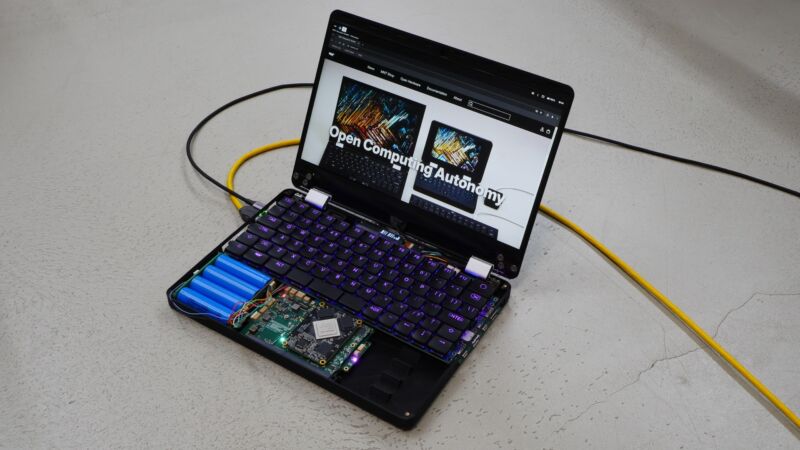“MNT Reform Next” combines open source hardware and usable performance

Enlarge / More streamlined (but still user-replaceable) battery packs are responsible for some of the Reform Next's space savings. (credit: MNT Research)

The current booting prototype of the MNT Reform Next. [credit: MNT Research ]
The original MNT Reform laptop was an interesting experiment, an earnest stab at the idea of a laptop that used entirely open source, moddable hardware as well as open source software. But as a modern Internet-connected laptop, its chunky design and (especially) its super-slow processor let it down.
MNT Research has been upgrading the Reform laptop and its smaller counterpart, the Pocket Reform, continuously since we took a look at it two-and-a-half years ago. The most significant upgrade is probably the Rockchip RK3588 processor upgrade, which offers four ARM Cortex-A76 CPU cores (the same ones used in the Raspberry Pi 5's Broadcom SoC) and four ARM Cortex-A55 cores, plus either 16GB or 32GB of RAM. While still not a high-end speed demon, these specs are enough to make it a competent workhorse laptop for browsing and productivity apps.
Now, MNT is revisiting the Reform with a more significant design update. The MNT Reform Next is smaller and thinner, defaults to a more traditional glass trackpad instead of a trackball, and is starting with the Rockchip RK3588 instead of the poky NXP/Freescale processor that the original laptop was saddled with.